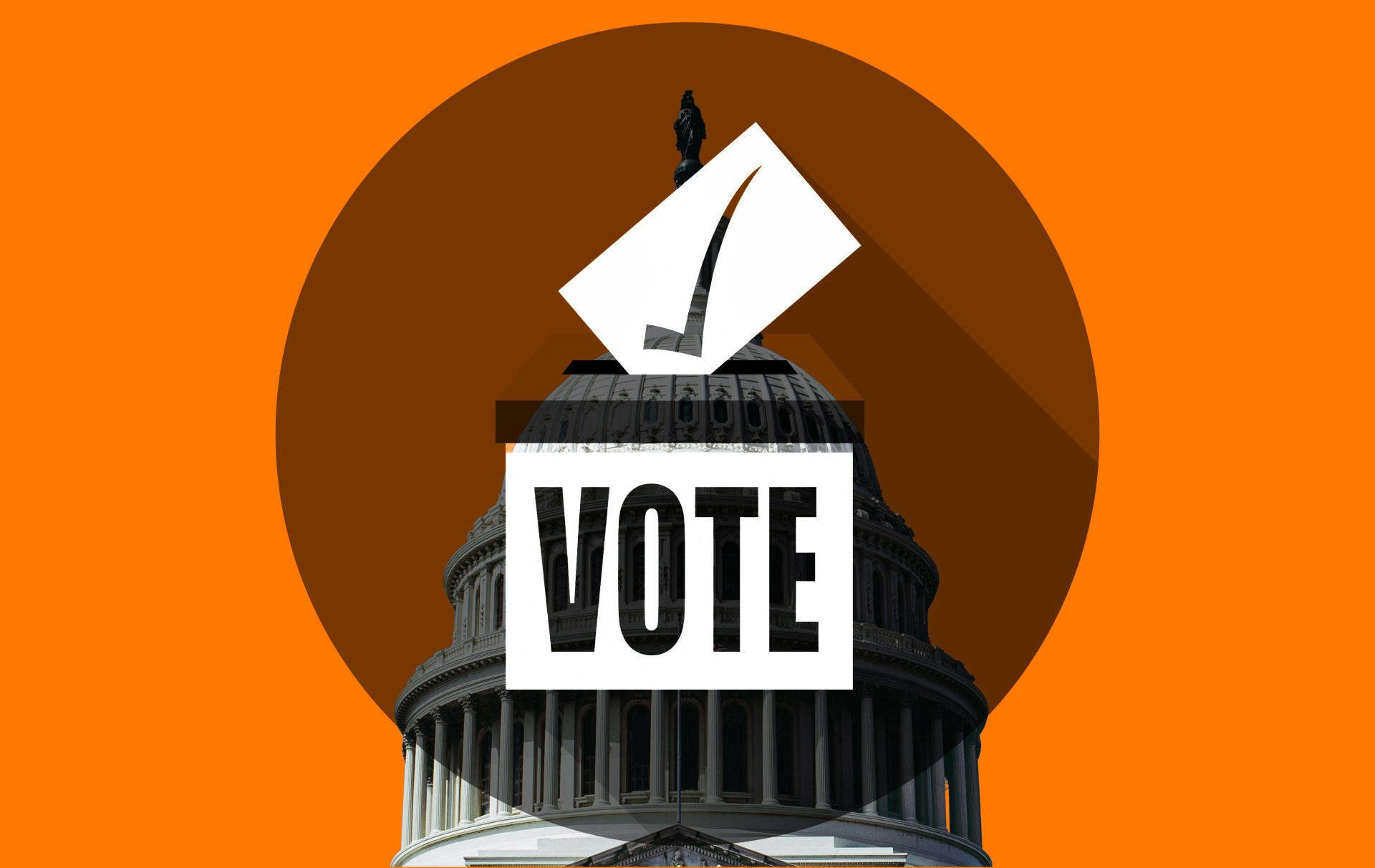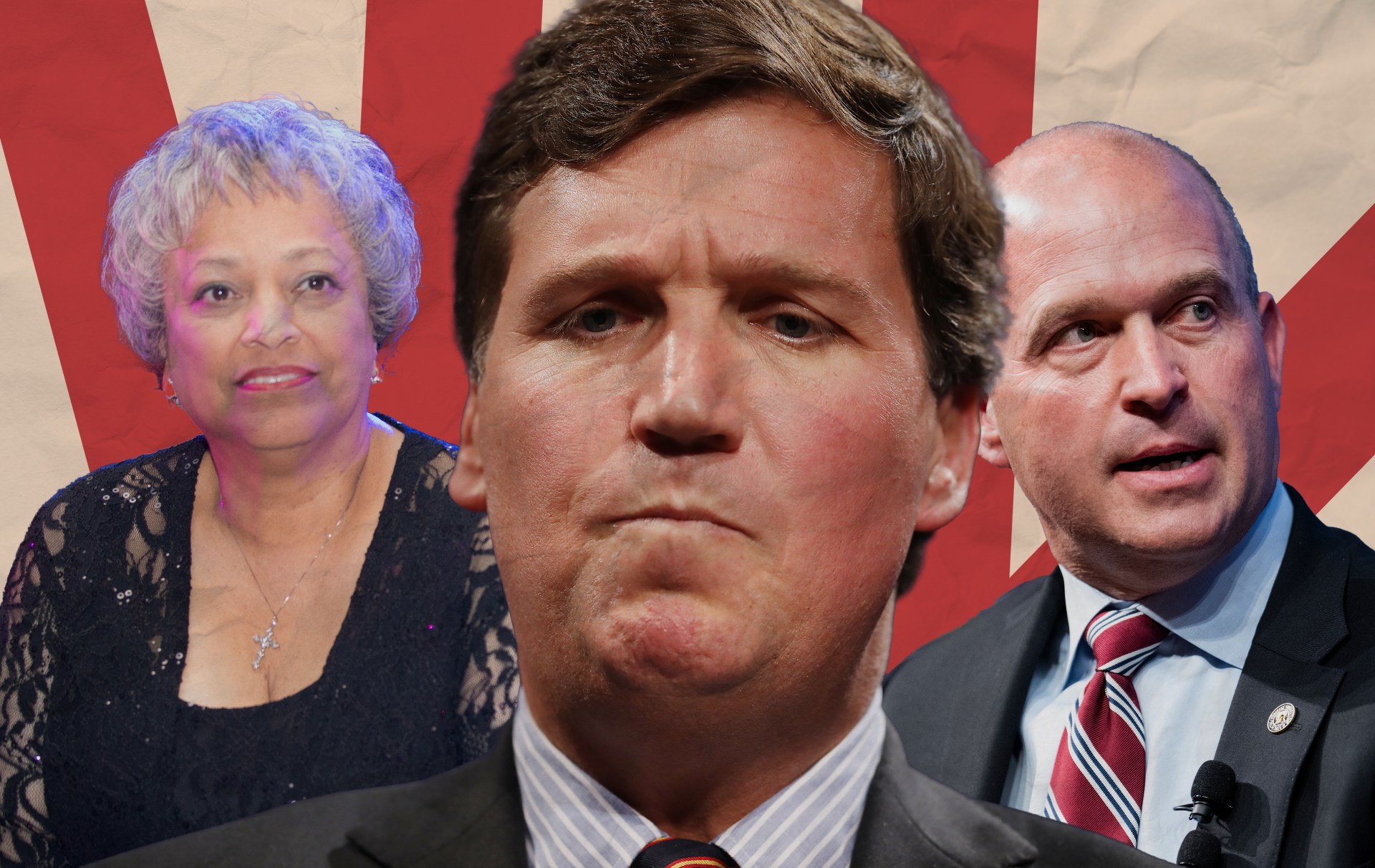It’s been more than a week since Congress voted to end the government shutdown and get back to business. And, this being Congress, that business has largely been occupied by votes to condemn each other.
This week in the House of Representatives—the people’s house!—members have introduced resolutions to reprimand or censure four different colleagues. One of them actually passed.
That would be a resolution from Tuesday to reprimand Rep. Chuy García. The Illinois Democrat had announced earlier this month that he would not be running for reelection, doing so right before the filing deadline for other candidates to submit petition signatures to run for the seat. As it turns out, since everyone had assumed he would run for reelection, only one other Democratic candidate had done the legwork to get enough signatures to file as a candidate: García’s own chief of staff. It all looked pretty underhanded, and coming in to call García out for it was his fellow Democrat, Rep. Marie Gluesenkamp Perez of Washington, who filed the resolution to rebuke him over the objections of her party’s leadership.
“My responsibility as an elected representative of my community is to say loudly and consistently, humbly and with love that no one has the right to subvert the right of the people to choose their elected representatives,” Gluesenkamp Perez said on the floor of the House Monday. Despite the gnashing of teeth from Democratic leadership, the resolution got 23 Democratic votes alongside nearly every Republican on its way to passing.
Less successful was a resolution, introduced by Republican Rep. Ralph Norman of South Carolina, to rebuke Del. Stacey Plaskett, the nonvoting member from the U.S. Virgin Islands. The recently released documents from convicted sex offender Jeffrey Epstein’s estate showed that Plaskett had communicated with Epstein over text message in 2019. Had the resolution passed on Tuesday night, the measure would have removed Plaskett from the House Intelligence Committee. But thanks to three defections and three present votes from House Republicans, the resolution narrowly failed.
But because this is all devolving into a battle over futility, Democrats responded to the GOP’s Plaskett gambit with a resolution of their own to censure Republican Rep. Cory Mills of Florida, who has been accused of misconduct against women. Democrats withdrew their censure resolution after Plaskett’s reprimand failed, but the fun wasn’t over for Mills. His own Republican colleague, Rep. Nancy Mace of South Carolina, filed her own censure motion against him. (Both Mace and Norman are running against each other for the Republican nomination for governor next year. Interpret that how you will.)
The House did not vote on the question of censuring Mills, voting instead to refer Mace’s measure to the House Ethics Committee, which had just voted to investigate Mills.
And you’d think we’d be done with all the reprimands and censures, but we’re not! On Wednesday, the Department of Justice announced that Rep. Sheila Cherfilus-McCormick, a Democrat from Florida, has been indicted on charges that she stole $5 million in federal emergency funds to funnel them into her congressional campaign. Her fellow Floridian, Republican Rep. Greg Steube, has said he will skip his plans to file a motion to censure Cherfilus-McCormick and simply move forward with an effort to expel her from the House.
Congress is out next week for the Thanksgiving holiday, or otherwise who knows what kind of congressional infighting we might have witnessed. My only question is: Who are the 15 percent of Americans who approve of how the legislative branch is doing?
Top Stories From the Dispatch Politics Team
Trade has always been a fraught issue for the Democratic Party: Presidents Bill Clinton and Barack Obama championed and negotiated multilateral free-trade accords. But Democrats from Midwestern battleground states never warmed to pacts like the 1994 North American Free Trade Agreement with Canada and Mexico, or the Trans-Pacific Partnership negotiated with Asian nations in 2016 but abandoned under political pressure stoked by Trump during that year’s presidential campaign. Hillary Clinton, the 2016 Democratic nominee, even campaigned against the TPP. Like Trump, Democrats blamed such deals for the outsourcing of manufacturing jobs and hollowed-out working-class communities. But nearly a decade later, Democrats in Congress—and those mulling a 2028 White House bid—are openly questioning the efficacy of tariffs.
Once again, Congress failed to pass all—or in this case, any—of its annual government funding bills by the end of the fiscal year. But missing the deadline for appropriations bills is nothing new. The Congressional Budget Act of 1974 put in place the current appropriations process. Paired with the Impoundment Control Act, Congress passed it to give the legislature a greater role in crafting the federal government’s annual budget and to help lawmakers on Capitol Hill hit a specific target for spending each year. Since the modern process took effect for the 1977 fiscal year, Congress has had trouble hitting the October 1 deadline. It passed the bills on time for that fiscal year, but since then it has done so only three times, the last time being for fiscal year 1997. But over the past 50 years, the law has ended up highlighting congressional dysfunction while enabling the federal deficit to balloon.
Regulations designed to protect consumers can reshape competitive dynamics in ways lawmakers don’t anticipate. The mechanism is straightforward economics: Regulatory compliance creates fixed costs, and fixed costs affect smaller competitors and new entrants differently than they affect established firms. While incumbents can absorb compliance costs as a part of doing business, smaller competitors may struggle or fail, and potential new entrants to the market may never emerge. The result can transform consumer protection into competitor elimination, regardless of the original intentions behind the regulation.
Rethinking the Role of the Strategic Petroleum Reserve
President Donald Trump has on multiple occasions committed to refilling the U.S. Strategic Petroleum Reserve (SPR) “right to the top,” but thus far hasn’t managed to secure the funds from Congress to do so. There is also plenty of debate about how full the SPR should be, given that its original purpose—namely, to cover for America’s massive net oil import dependence—has faded in importance following the shale revolution and the United States’ shift to being the world’s largest petroleum producer and exporter.
In their latest show of political bankruptcy, leaders of the world’s most powerful nation recently proved incapable of passing a single appropriations bill, whether for America’s armed forces, air traffic regulation, border control, or any other federal function, however essential or superfluous. More fundamentally, Washington is headed toward fiscal insolvency, with neither Democrats nor Republicans prepared to set priorities, make trade-offs, and balance wishes and resources. There is no simple fix to what is genuinely a looming crisis, in contrast to the many faux emergencies proclaimed by politicians to advance their usually prosaic partisan ends. However, one idea worth trying is an older, somewhat dated one: congressional term limits.
Many of our elected officials appear to be ideologically extreme, incompetent, corrupt, power hungry, out of touch, or all of the above. To address these concerns, many reformers have championed term limits to legally prevent incumbents from seeking reelection. As tempting as this proposal may initially seem, it faces several problems. First, there is little reason to think that the new candidates replacing the term-limited incumbents would be any better. If there are better alternatives, voters can replace incumbents without term limits—by voting them out of office. And our already bad incumbents would likely be even worse if they were no longer motivated to win reelection. We should want voters to select their politicians, and we should want those politicians to work hard to earn back their seats.
“I try to stay away from think tank people,” Tucker Carlson told The Dispatch over text. “In general they’re boring and dumb.” Boring and dumb or not, it’s simply not true that he keeps his distance from one particular think tank and its people. Carlson’s influence at the Heritage Foundation over the past several years is undeniable and even recognized by the organization itself. He was, in fact, the recipient of Heritage’s Salvatori Prize in American Citizenship in 2018 as well as the keynote speaker at Heritage’s 50th anniversary celebration in 2023. Heritage had also spent lots of money advertising on Carlson’s X show, both before and after the 2024 election, with Carlson himself doing personal ad reads urging viewers to go to “heritage dot org slash Tucker” to donate. But Heritage president Kevin Roberts’ bear hug with Carlson is what has also led many people who care deeply about the organization to shake their heads at how he’s shaping the institution. “Tucker ruined Heritage,” lamented one former senior staffer.
Enjoying our Dispatch Politics Roundup? Consider forwarding this article to someone you know who likes independent, fact-based journalism.
























